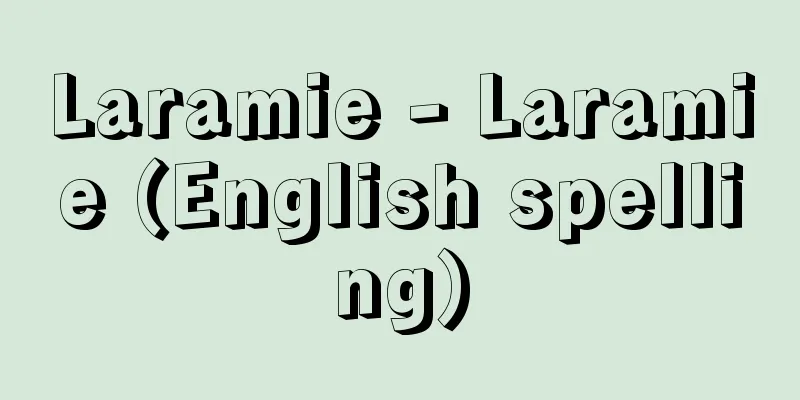Gurkha - Gurkha (English spelling)

|
The term originally comes from the Gorkha dynasty in central Nepal, and since the Gorkha dynasty overthrew the Newar Malla dynasty and founded the current Kingdom of Nepal in 1768, it has broadly referred to all Nepalis. In a narrower sense, it refers to several ethnic groups of Hindus in the mountainous region of Nepal. They were originally from central India, but moved north to Nepal in the 14th century due to the Muslim invasion. Even today, they remain strongly influenced by Indian culture, such as Hinduism and the caste system. The Newars are a mountain people in the Kathmandu Valley, and are one of the ethnic groups that make up part of the Nepalese people. Although the Gurkhas have been a warlike and brave people since ancient times, they rose to fame after joining the British Army and achieving glorious results in the Indian Mutiny (Sepoy Mutiny) of 1857. They made a name for themselves as British mercenaries in World War I, and fought in various parts of the world in major wars and civil wars. With the partition of India in 1947, the Gurkha regiments were divided into the British Army stationed in the Far East and the Indian Army, but there was no end to those who volunteered for the military, and all Nepalese soldiers, including Gurkhas, were called Gurkha soldiers, and they gained international fame as brave and courageous soldiers. Hundreds of Gurkha soldiers also served as part of the British Army in the Falklands War in 1982. There are many former Gurkha veterans in Nepal who live on military pensions. [Katata order] Source: Shogakukan Encyclopedia Nipponica About Encyclopedia Nipponica Information | Legend |
|
もともと中央ネパールのゴルカ王朝からきたことばで、1768年にゴルカ王朝がネワール人のマッラ朝を倒して現ネパール王国を創建して以来、広義にはすべてのネパール人Nepalisをさす。狭義にはネパール山地のヒンドゥー教徒のいくつかの民族集団をさす。もとはインド中部にいたが、14世紀ごろイスラム教徒の侵攻で北に移動してネパールに入った。現在でもヒンドゥー教とカースト制などインド文化の影響を強く残している。また、ネワール人Newarはカトマンズ盆地の山地民族で、ネパール人の一部を構成する民族集団の一つ。 古くから好戦的で勇猛な民族であったが、グルカが一躍有名になったのは1857年のインドの大反乱(セポイの反乱)で、イギリス軍に加わってインド軍と戦い輝かしい戦果をあげてからである。その後も第一次世界大戦にイギリス軍の傭兵(ようへい)として名をあげ、大戦や内戦のたびに世界各地に出兵して戦った。1947年のインド分割に伴ってグルカ兵の連隊は極東駐在のイギリス軍とインド軍とに分かれたが、軍隊を志願する者は後を絶たず、グルカ人を含めたすべてのネパール人兵士はグルカ兵とよばれ、勇猛果敢な兵士として国際的な名声を得た。1982年のフォークランド紛争にもイギリス軍の一員として数百人のグルカ兵が出兵した。ネパールには数多くの元グルカ兵の退役軍人がおり、軍隊の年金で暮らしている。 [片多 順] 出典 小学館 日本大百科全書(ニッポニカ)日本大百科全書(ニッポニカ)について 情報 | 凡例 |
Recommend
Shoho (English spelling) chao fǎ
A monopoly system developed in the Song Dynasty in...
Ibogawa [town] - Ibogawa
A former town in Ibo County in the southwest of Hy...
Electrochemical Industry
It refers to the electrolytic industry that uses ...
Thoracic duct
The main trunk of the lymphatic system that collec...
Crinum longifolium (English spelling)
…[Tora Saburo Kawabata]. … *Some of the terminolo...
sea shore
...The shorelines corresponding to the average hi...
Sagara Clan Law - Sagara Shihat
These are the provincial laws of the Sagara clan, ...
Paper shop - Kamiya
〘 noun 〙① A place where paper is made. Also, the c...
Eizaburo Ueno
Year of death: May 22, 1925 Year of birth: 1871 (4...
Nikolay Aleksandrovich Berdyaev
Russian religious philosopher. Born into a milita...
Ukitsuriboku - Ukitsuriboku
→Abutilon Source : Heibonsha Encyclopedia About My...
Isazamemi - Isazamemi
A small aquatic animal belonging to the family My...
Yoshiki Otsuka
⇒ Sogo Otsuka Source: Kodansha Digital Japanese Na...
Aemilius Bridge - Aemilius Bridge
In the mid-2nd century BC, the city of Rome exper...
Ethane (English spelling)
A colorless, odorless gas that is a saturated lin...









